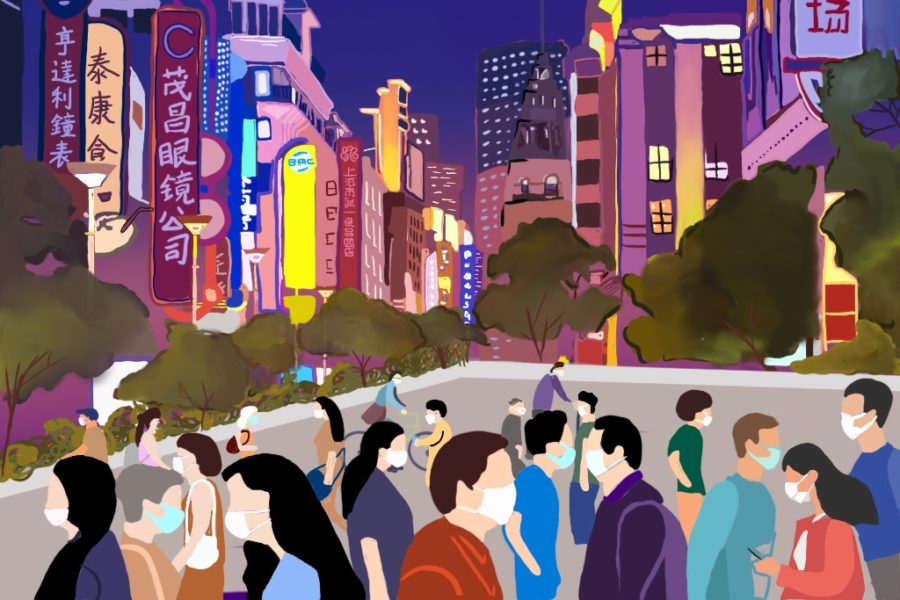China’s Zero Covid Policy Has Done Enough Harm
Residents in Shanghai have faced strict quarantine restrictions as part of the government’s attempt to rid the country of Covid-19.
Ever since the first Covid-19 outbreak two years ago, China has taken hard-line measures to contain the pandemic. As the rest of the world returns to normal, with many countries lifting restrictions and making masks optional, China continues its Zero-Covid policy. Each time a few cases appear, entire compounds and districts are put under lockdown. As a result, schools shift constantly between online and in-person on short notice, and society has been halted to a stop.
While many previously thought the strict policies were necessary, public opinion has now shifted from supporting the hard-line policies to opposing them. Despite an increase in Covid-19 cases in mainland China, the government does not have the resources or infrastructure to lockdown households and the larger economy.
The most recent municipality to be placed under strict lockdown protocols is Shanghai, which has faced restrictions for over a month now. During this lockdown, many office buildings and schools were converted into quarantine zones for the infected, and citizens were restricted from leaving their households. Shanghai looks like a ghost town right now. Recent reports and footage of its citizens being starved and deprived of sanitary supplies have surfaced, calling into question the ethicality of China’s strict Zero-Covid policy. A global metropolis of 26 million cannot rely on government workers, active service members, and civilian volunteers to to sustain itself. There is not enough cohesive logistical planning from the government to support such an extreme response.
The reality is clear: China’s Zero-Covid policy is not sustainable.
Many citizens of Shanghai have had to rely on the kindness and willingness of friends and neighbors who suffer from the same problem. While supply distribution efforts continue to be inadequate, a current student from Shanghai recalled how his family has managed by trading supplies with other families and stretching supplies for as long as possible. These exchanges range from toiletries for flour, pasta for paper towels, and even go as far as slices of homemade bread for bottles of water. For lower-income families, however, the reality is much harsher. With the high demand for almost everything in the city, lower-income families do not have enough resources to trade, nor enough money to purchase supplies. The government response never arrived, and entire residential buildings are commonly skipped during the process of food distribution. The student’s family said, “Before enacting the policy, three conditions must be met. 1, there needs to be a guarantee of supplies and food for everyone in the city. 2, those who are infected with the virus must be provided with the necessary medication immediately. Front line workers must also have access to the supplies that they need when they need it. 3, testing and locating infected members of the community needs to be fast and efficient. Rapid testing equipment, as well as accommodation for those in quarantine, is also essential.”
The policy is further hindered by the corrupt “councils” that manage different districts and the distribution of humanitarian aid. Some councils have taken donated relief supplies and put them up for sale privately with ridiculous price tags. Some poor families are not able to afford these commodities, and as a result, many are surviving off of as little as one cob of corn a day. Residents in Shanghai are suffering because of China’s Zero-Covid policy. It must be re-examined.






